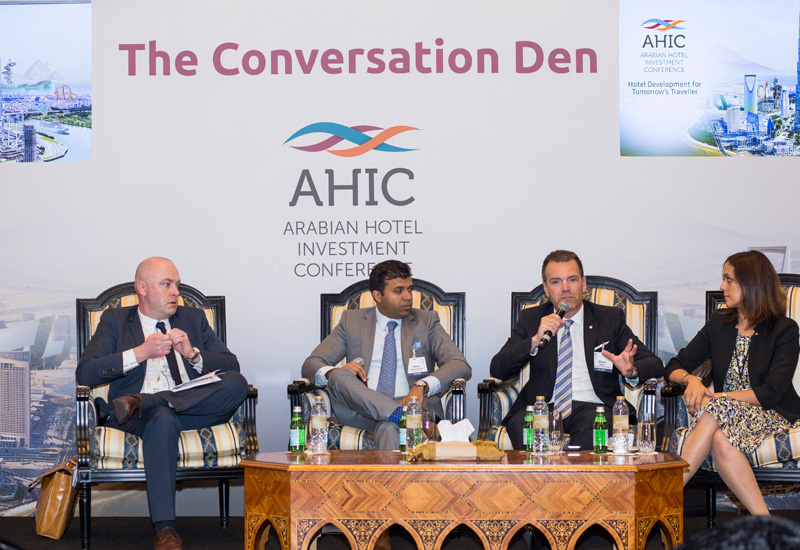OIL PRICES
The topic of oil has long been talked about in the industry, but there is a way to meet this challenge head-on. A.A. AlMoosa Enterprises LLC director Anil Bhardwaj says the macro-economic challenges in the region with the sharp drop in oil prices may very well have a significant impact on the pace and direction of development.
“Hospitality may not necessarily be adversely impacted if governments attempt to develop tourism more, both domestically and internationally in the region to create greater sources of income and employment. As an example, Dubai is releasing many tourist centric projects this year and Oman has mentioned more aggressive development of tourism,” he adds.
Sita adds to the conversation: “It is without doubt that this has and will continue to have an impact on certain directly related business tourism; however the impact on overall hotel occupancy is not extreme. The country’s leaders have implemented a strategy that shields the country substantially against such fluctuations through diversity, security and increased product offering. It is true to say that mitigating this risk by seeking markets further afield in South East Asia versus traditional Gulf visitor markets is a continuing policy.”
Essonni says: “Our hotel statistics show that FIT travel from the GCC has remained static post oil prices decline, which is a clear indication that the cuts in government spending only affected marginally individual travel patterns. Furthermore, if airlines, international and domestic, lower their fares accordingly, this will undoubtedly have a positive impact on tourism levels globally. The impact of the fall in oil prices on Dubai’s economy is insignificant due to its diversification and rather limited dependence on hydrocarbons’ proceeds.”
Marriott International was aware of several factors, including oil prices, that would see a tougher market when entering 2016. Kykriakidis adds: “We of course, continue to monitor ongoing fluctuations alongside other macroeconomic issues but we remain poised for continued growth.”

| Advertisement |
VISION FOR THE FUTURE
In the theme of the event “Eye on the Future”, Essonni says the future looks positive. He says: “In 2015, Dubai held its own against all odds. It continued to establish itself globally as a prime destination for leisure and business travellers alike.”
Manzoor also has a positive outlook. He says that while it is true that many major markets in the GCC faced depressed key performance indicators in 2015, this was more often than not reflected in the achievable rate rather than average occupancy levels. “This is indicative of the fact that hotel guests are still travelling to the GCC, but they simply have less money to spend and a lack of quality internationally branded mid-market hotels is a challenge that many markets are facing. Most markets in the GCC are already well represented in terms of luxury and upper upscale supply, but the future of the industry will likely hinge on the development of more affordable hotel accommodation.”
Sita adds that IFA’s overall sentiment to the Dubai hospitality sector is positive. “Whilst regional geopolitical events have had an influence on sentiment, the investment in infrastructure both logistical and through entertainment continues and drives tourism numbers. January 2016 saw a 6.3% year-on-year increase in airport arrivals with 2015 overall witnessing a 10.7% jump in numbers through Dubai Airport. This proves positive that Dubai continues to present a compelling proposition. New entertainment through the theme parks currently under development will only add to repeat visitors and new visitors alike.”
Article continues on next page...






web.jpg)



 Search our database of more than 2,700 industry companies
Search our database of more than 2,700 industry companies









